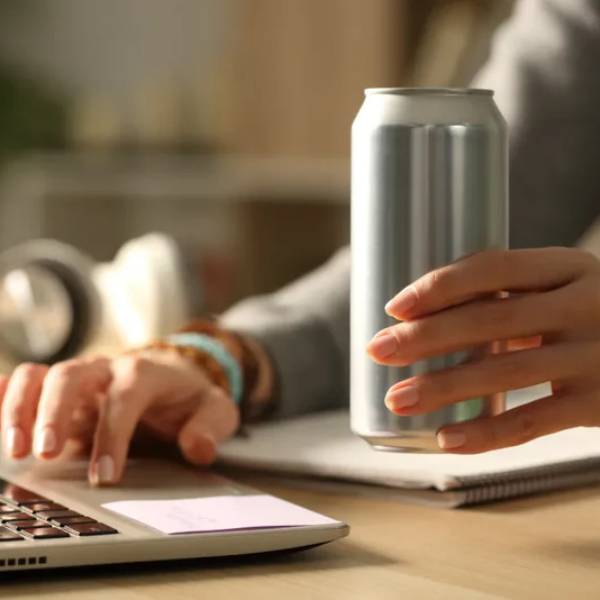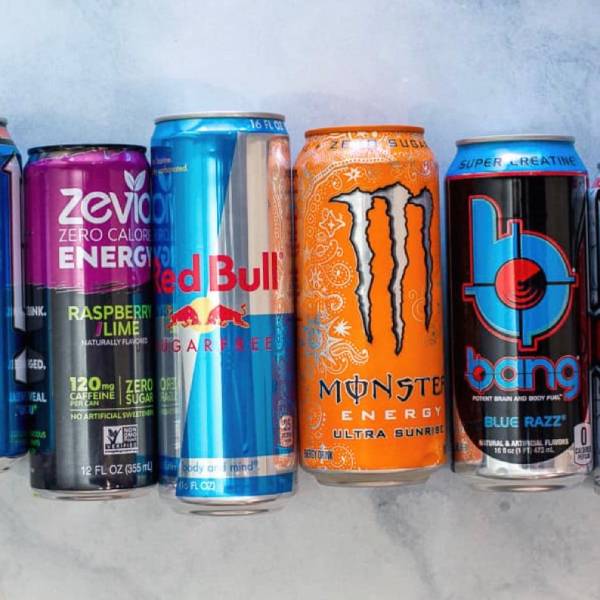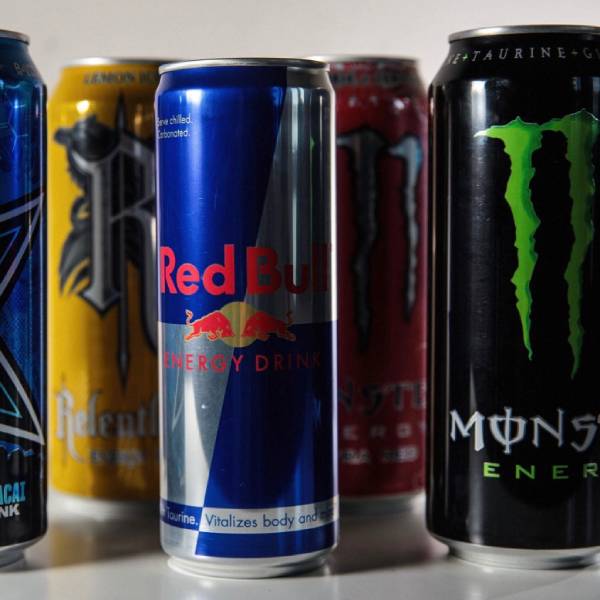Energy drinks promise a boost of energy and focus. Millions consume these beverages daily. However, some people wonder, “Why don’t energy drinks work on me?” This article explores various reasons.
Understanding Energy Drinks
The Appeal of Energy Drinks
Energy drinks attract many people due to their stimulating effects. Caffeine and sugar provide an immediate boost in energy. Brands like Red Bull and Monster market these drinks as ways to enhance focus and endurance. Many athletes and students use them to cope with demanding schedules. People often believe that energy drinks improve performance during physical activities or intense study sessions. However, this belief may not hold true for everyone. Individual reactions depend on a variety of factors, including tolerance and metabolism.

Potential Risks and Considerations
While energy drinks can offer short-term benefits, they may also pose health risks. Excessive caffeine intake can lead to anxiety and heart palpitations. Sugar can contribute to weight gain and increase the risk of diabetes. Moreover, some people may experience a crash in energy after the initial boost.
This crash can leave them feeling more fatigued than before. Therefore, it’s essential to understand personal limits when consuming these beverages. Combining energy drinks with alcohol can exacerbate health issues and impair judgment. Ultimately, consumers should weigh the potential benefits against the risks before incorporating energy drinks into their routines. Moderation is crucial, as is awareness of individual health conditions.
The Role of Caffeine
Understanding Caffeine’s Effects
Caffeine acts as a powerful stimulant, and it boosts alertness and energy levels. Many people rely on energy drinks for a quick pick-me-up. However, individual responses to caffeine can vary significantly. Some people metabolize caffeine quickly, meaning it leaves their system faster. This rapid metabolism can lead to fewer noticeable effects. Consequently, individuals may wonder why energy drinks do not provide the expected boost. Understanding these variations helps explain the disparity in experiences with energy drinks.
Factors Influencing Caffeine Metabolism
Several factors influence how individuals metabolize caffeine. Genetics play a crucial role in determining enzyme activity in the liver. Age also affects metabolism, with younger individuals often processing caffeine more efficiently. Additionally, factors like medication, diet, and overall health can impact caffeine’s effects. For instance, certain medications hinder caffeine metabolism, making energy drinks less effective.
Furthermore, caffeine tolerance develops over time, leading to diminished effects with regular consumption. As a result, regular energy drink users might find less potency in these beverages. This complexity explains why some people experience energy drinks differently from others. Understanding these factors can lead to better choices regarding energy consumption and provide more tailored options for energy boosting.
Individual Tolerance Levels
Understanding Caffeine Tolerance
Every individual’s body responds uniquely to caffeine. Regular caffeine users usually develop a tolerance, requiring larger amounts for the same stimulating effect. Consequently, the body learns to adapt to caffeine consumption over time. When someone routinely consumes energy drinks, their tolerance builds up gradually. This may lead them to think these drinks no longer work effectively. They might feel disappointed when they don’t experience the anticipated surge of energy. This threshold shift explains why certain beverages lose their boost over time.

Effects of Energy Drink Consumption
Frequent energy drink consumers often notice diminishing returns from their favorite beverages. As their thresholds rise, they may crave new ways to feel energized. Some individuals might opt for even stronger energy drinks or increase the number of drinks they consume. This cycle can become problematic, as excessive caffeine intake leads to negative side effects. These side effects may include increased heart rate, anxiety, or insomnia.
Moreover, many consumers may not recognize these patterns, which can create dependency. Therefore, moderation remains essential in caffeine consumption. Finding a balance can help prevent the need for excessive intake while still enjoying the benefits of caffeine. Individuals should listen to their bodies and adjust their consumption accordingly. By doing so, they can maintain a healthy relationship with energy drinks while avoiding unwanted effects.
Dehydration and Fatigue
The Hidden Impact of Dehydration
Dehydration can significantly affect your energy levels and overall health. Many people overlook this crucial factor. They often turn to energy drinks for a quick boost. However, these drinks can contribute to dehydration, especially when consumed excessively. Energy drinks typically contain high levels of caffeine. Caffeine acts as a diuretic, which means it increases your need to urinate. When you drink energy drinks without balancing them with enough water, your body can become dehydrated. This dehydration not only affects your energy levels but also diminishes the intended effects of the drinks.
Understanding the Effects of Energy Drinks
When you experience fatigue despite consuming energy drinks, dehydration might be the culprit. You may ask yourself, “Why don’t energy drinks work on me?” The answer could lie in your hydration levels. Consuming these drinks without adequate water creates a cycle of fatigue. Moreover, you could feel even more tired as the dehydration sets in. This can lead to a vicious cycle where you continuously seek energy from these drinks.
Instead, focus on staying hydrated throughout the day. Drinking water regularly can help maintain your energy levels effectively. If you choose to enjoy energy drinks, pair them with plenty of fluids. This strategy can help you maximize their benefits and keep dehydration at bay. Ultimately, understanding the connection between hydration and energy will lead to better choices regarding your energy sources.
Sleep Quality Matters
Another crucial factor is sleep quality. Poor sleep impacts your energy throughout the day. If you consistently lack rest, energy drinks cannot compensate. They might provide a temporary surge, but it won’t last. This can lead to the disappointment of asking, “Why don’t energy drinks work on me?” A well-rested body responds better to stimulants. Poor sleep can make even the best energy drinks ineffective; consider the worst energy drinks for you if you’re not resting well.
Nutritional Imbalances
Diet plays a significant role in energy levels. A poor diet can lead to nutrient deficiencies. If your body lacks essential vitamins and minerals, you may feel fatigued. Energy drinks cannot replace nutritional needs. Thus, if you consume them without a balanced diet, you might find them ineffective. This raises the question, “Why don’t energy drinks work on me?” The worst energy drinks often exacerbate fatigue when consumed without a proper diet, leaving you wondering why they don’t provide the boost you need.

Psychological Factors
Mental state can influence how energy drinks affect you. If you feel stressed or anxious, you may not experience a boost from these beverages. Your mind plays a crucial role in your overall energy perception. A positive mindset might enhance the effectiveness of energy drinks. Conversely, negative emotions may hinder their impact. This complexity is crucial to understanding, “Why don’t energy drinks work on me?” Energy drinks with the most caffeine may not boost energy if you’re stressed, highlighting the importance of mental state in their effectiveness.
The Bottom Line
In conclusion, energy drinks do not work for everyone. Factors such as caffeine tolerance, hydration, sleep quality, diet, and mental state all contribute. If you find yourself repeating, “Why don’t energy drinks work on me?” consider assessing these aspects. Personal awareness can lead to better choices for energy management. If energy drinks are ineffective, exploring other methods might be beneficial. Remember, a balanced lifestyle often yields the best results when it comes to energy levels.